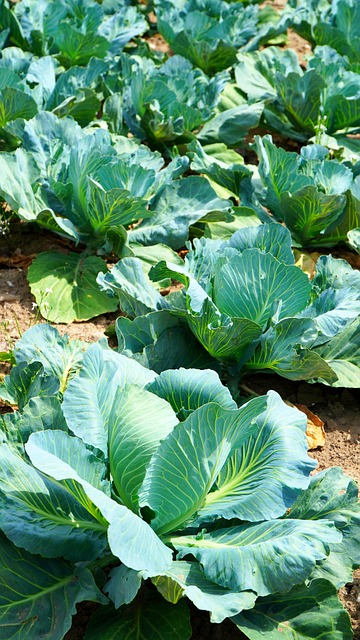Live in the Netherlands and speak English? Explore seasonal and farm work opportunities near you.
In the Netherlands, farm work is often available during seasonal periods and throughout the year in greenhouses, fields, and livestock facilities. English speakers may find roles that involve planting, harvesting, packaging, or assisting with daily operations. Learn what experience is typically expected, how shifts are structured, and where demand is highest for reliable workers.

What types of farm work are available in the Netherlands?
The Dutch agricultural sector is diverse, offering a variety of farm work opportunities. Greenhouse operations are particularly prevalent, with the Netherlands being a global leader in protected cultivation. Field work is also common, especially during peak seasons. Here are some of the main types of farm work you might encounter:
-
Greenhouse work: This includes planting, tending, and harvesting crops like tomatoes, peppers, and cucumbers.
-
Field work: Seasonal tasks such as planting and harvesting outdoor crops like tulips, potatoes, and sugar beets.
-
Livestock care: Assisting with dairy farming, pig farming, or poultry operations.
-
Fruit picking: Seasonal work in orchards harvesting apples, pears, and berries.
-
Floriculture: Working with flowers and ornamental plants in both greenhouse and field settings.
-
Packaging and processing: Preparing harvested products for distribution in packing facilities.
When and where is seasonal demand highest for farm work?
Seasonal demand for farm work in the Netherlands follows the agricultural calendar, with peak periods typically occurring during planting and harvest times. Here’s a general overview:
-
Spring (March to May): High demand for planting and greenhouse work.
-
Summer (June to August): Peak season for fruit picking and field work.
-
Autumn (September to November): Harvest season for many crops, including potatoes and apples.
-
Winter (December to February): Lower demand, but greenhouse work continues year-round.
Geographically, the demand for farm work is spread across the country, but certain regions are known for specific agricultural activities:
-
Westland and Oostland: Major greenhouse areas, especially for vegetables and flowers.
-
Flevoland: Known for large-scale arable farming.
-
North Brabant and Limburg: Significant areas for intensive livestock farming.
-
Betuwe region: Famous for fruit production, particularly apples and pears.
What tasks are typically involved in greenhouse or field work?
Greenhouse and field work encompass a wide range of tasks, each crucial to the success of agricultural operations. In greenhouses, you might be responsible for:
-
Planting seeds or seedlings
-
Monitoring plant growth and health
-
Pruning and training plants
-
Harvesting ripe produce
-
Cleaning and maintaining greenhouse structures
Field work tasks can include:
-
Preparing soil for planting
-
Sowing seeds or planting seedlings
-
Weeding and pest control
-
Irrigation management
-
Harvesting crops
-
Operating farm machinery (for experienced workers)
Both environments require attention to detail, physical stamina, and the ability to work in various weather conditions.
What level of experience is usually needed for farm jobs?
The level of experience required for farm jobs in the Netherlands can vary depending on the specific role and employer. Many entry-level positions are available for those with little to no prior experience, especially for seasonal work like fruit picking or basic greenhouse tasks. These roles often provide on-the-job training.
For more specialized positions or year-round employment, some experience or relevant education in agriculture may be preferred. However, a willingness to learn and a strong work ethic are often valued just as much as prior experience.
Key skills that are generally appreciated in farm work include:
-
Physical fitness and stamina
-
Ability to work in various weather conditions
-
Attention to detail
-
Basic understanding of plant or animal care
-
Teamwork and communication skills
-
Flexibility and reliability
Some roles, particularly those involving machinery operation or livestock management, may require specific qualifications or certifications.
How are schedules structured in Dutch agricultural settings?
Work schedules in Dutch agricultural settings can vary significantly depending on the type of farm, the season, and the specific role. Here’s an overview of common scheduling structures:
-
Seasonal work: During peak seasons, work days can be long, often starting early in the morning. Shifts may last 8-10 hours, sometimes 6 or 7 days a week.
-
Year-round greenhouse work: This typically follows a more regular schedule, with shifts often running from early morning to mid-afternoon. Some operations may have multiple shifts to ensure continuous care for crops.
-
Livestock farming: These roles often require early morning and evening work, with potential for split shifts to accommodate animal care needs.
-
Full-time positions: Generally offer more stable schedules, often following a standard 40-hour work week, though exact hours may vary.
-
Part-time and flexible work: Some farms offer part-time positions or flexible scheduling, which can be ideal for students or those seeking supplemental income.
It’s important to note that agricultural work often requires flexibility, as schedules may need to adjust based on weather conditions, crop readiness, or urgent farm needs.
In conclusion, farm work in the Netherlands offers diverse opportunities for English-speaking residents. From seasonal fruit picking to year-round greenhouse operations, there’s a wide range of roles available across the country. While some positions may require experience, many are open to enthusiastic beginners willing to learn. Understanding the types of work available, peak seasons, and scheduling structures can help you find the right agricultural opportunity to suit your needs and skills.




